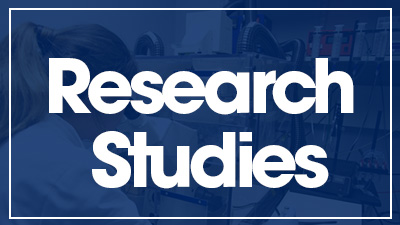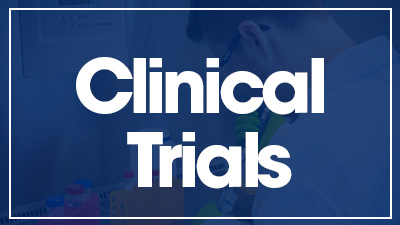Here you can find the latest MND research news from around the world. Stay tuned to find out about clinical trial outcomes, breakthroughs in the lab, interesting research papers and more.
Wearable sensors could help monitor MND disease progression
6 April 2024
Researchers from the University Medical Centre Utrecht have found that data from wearable sensors could be used to predict disease progression and survival. In the study, people with MND wore a sensor on their hips, for three to seven days. This was then repeated every two to three months for up to 18 - 24 months. The researchers suggest this study provides evidence to support the use of wearable sensors in clinical trials, to help monitor any treatment effects. However, they suggest that wearable sensors could not be used on their own, and could only be used to help support other measures of disease progression.
Using wearable sensors allows for additional data to be collected at home, rather than in the clinic, which may enhance the detection of treatment effects. You can read more here.
Amylyx to voluntarily remove AMX0035 from the market
4 April 2024
Based on the negative results from the Phase 3 clinical trial (PHOENIX), Amylyx have decided to voluntarily discontinue the marketing authorisations for AMX0035 (also known as RELYVRIO and ALBRIOZA) in the US and Canada. AMX0035 is no longer available for new patients. Amylyx also announced that the open label extension from PHOENIX will continue, to allow for further data to be collected and analysed. You can read more in a press release.
AMX0035 was approved for use in the US and Canada in 2022, based on the data from the Phase 2 CENTAUR clinical trial. Earlier this year the European Medicines Agency recommended against the approval of AMX0035 in Europe. You can read more about AMX0035 here.
Phase 3 clinical trial of TUDCA does not meet primary endpoint
27 March 2024
The TUDCA consortium have announced that the phase 3 clinical trial of TUDCA did not meet its primary endpoint. The primary endpoint of the trial was to observe a greater than 20% reduction in the slope of the ALSFRS-R score after 18 months. This would indicate a reduction in disease progression. However, this was not achieved by the end of the study. A statistically significant difference between treatment and placebo groups was also not observed for survival and a marker of nerve damage, called neurofilament light chain. Reductions in this marker can indicate a reduction in damage to motor neurones. Read more in a press release and read our statement with MND Scotland and My Name’5 Doddie here.
Trehalose arm of the HEALEY Platform trial does not meet primary or secondary endpoints
19 March 2024
Top-line results from the trehalose regiment of the HEALEY Platform trial show that the trial did not meet its primary or secondary endpoints. This suggests that there was no significant change in ALSFRS-R scores (from baseline to 24 weeks) for those who received the treatment compared to those who received placebo (dummy drug). There were also no differences found in secondary endpoints, such as muscle function and respiratory measures. You can read more in a press release.
The HEALEY Platform trial is designed to accelerate the process of drug development and identifying effective treatments for MND by testing multiple drugs at the same time and being able to easily remove drugs that are not found to be beneficial and to quickly add new drugs for investigation.
Phase 3 clinical trial of AMX0035 does not meet primary or secondary endpoints
8 March 2024
Amylyx Pharmaceuticals have announced that the phase 3 clinical trial of AMX0035 (PHOENIX) did not meet its primary or secondary endpoints. This suggests that there was no significant change in ALSFRS-R scores (from baseline to 48 weeks) for those who received the treatment compared to those who received the placebo (dummy drug). There were also no differences found in secondary endpoints, such as quality of life and muscle function measures, between those who were given AMX0035 compared to those on placebo. The full results will be published later this year.
AMX0035, also known as Relyvrio and Albrioza, was approved for MND in the USA and Canada in 2022. The initial results of this phase 3 trial may mean that the drug is withdrawn from the market in these countries. Amylyx will discuss the results with regulatory authorities and MND communities before making a decision on the future of the drug in the next few weeks. You can read more about this in a press release here and find out more about AMX0035 here.
New tool could detect signs of MND before symptoms begin
7 March 2024
Researchers from the University of Aberdeen, University of Edinburgh and other international partners have started to develop a new tool which could identify signs of MND earlier. The test has currently only been used with tissue samples and further development of the test would be needed before it could be used in clinic.
The test works by tagging toxic clumps of TDP-43, which are known to form in ~97% of people with MND. This new approach improved the accuracy of detecting these clumps compared to previous traditional approaches. Using this method the researchers were able to detect toxic clumps before symptoms of MND began. It is hoped that this new tool could, in the future, help diagnose the disease earlier and allow people earlier access to new treatments as they emerge. You can read more here.
Tofersen receives positive opinion from European Medicines Agency Committee
23 February 2024
The Committee for Medicinal Products for Human Use (CHMP) of the European Medicines Agency (EMA) has announced a positive opinion for the approval of tofersen (Qalsody) for the treatment of SOD1 MND. The recommendation is for a marketing authorisation under exceptional circumstances, which means tofersen will be subject to monitoring once approved. The CHMP panel reviews the scientific evidence and forms an opinion on whether new drugs should be approved in Europe. The committee based their review on data from the phase 3 VALOR trial and its open label extension. This positive recommendation will now be sent to the European Commission who will make the final decision on approval in the EU within 67 days. You can read more about this recommendation here or in a press release.
The EMA determines approvals for the EU. It is thought that Biogen are currently pursuing the International Recognition Procedure (IRP) for approval in Great Britain (England, Wales and Scotland). This procedure allows the regulator for Great Britain, known as the Medicines Healthcare products Regulatory Agency (MHRA), to take into account the decisions from trusted regulatory partners, such as the EMA, when making the decision to approve new treatments.
Regulatory approval in Great Britain does not automatically mean the treatment will be available on the NHS. First, it must be assessed by NICE, who advise the NHS whether a new treatment is cost effective. During their evaluation NICE review evidence from clinical trials, assess the benefits and quality of life the treatment would provide and weigh these against the cost of the treatment. Tofersen is in the early stages of this process with NICE.
A phase 3 trial of tofersen, called ATLAS, is currently underway. This trial is investigating whether treatment before physical symptoms appear can delay the onset of symptoms and slow disease progression when symptoms do develop. You can find out more about tofersen and ATLAS on our website.
SAR443820 clinical trial does not meet primary endpoint
20 February 2024
Denali Therapeutics reported that the phase 2 clinical trial of SAR443820 (HIMALAYA) did not meet its primary endpoint. This suggests that there was no significant change in ALSFRS-R (from baseline to 24-weeks) for those who received the treatment compared to those who received the placebo (dummy drug). Further details on the trial outcome are expected in the coming months. You can read more about SAR443820 here.
Single-dose gene therapy stops MND progression in early laboratory research
15 February 2024
Researchers from Macquarie University have developed a single-dose gene therapy which has been found to clear clumps of a toxic protein, called TDP-43, in early laboratory testing. Toxic clumps of TDP-43 are found in 97% of cases of MND. The researchers found that when TDP-43 is faulty, levels of another protein, called 14-3-3θ, are increased. These two proteins then interact, and this leads to build up in cells. The new potential gene therapy (CTx1000) can help to control the interaction between the two proteins.
In early laboratory testing, in models of MND, a single dose of CTx1000 only targeted faulty TDP-43. This meant that the healthy version of TDP-43 could still be produced and work as it should, while the faulty version was prevented from forming. The researchers now hope to continue the development of CTx1000 which will hopefully lead to testing in clinical trials. You can read more about CTx1000 here.
MND Association announces new £5 million investment to give more people with MND access to clinical trials
6 February 2024
The MND Association are developing a new network of MND Association Research Nurses across England, Wales and Northern Ireland. The new Network aims to give everyone diagnosed with MND a chance to take part in research. The specialist nurses will help people with MND navigate the research trial process – providing information, identifying trials and research opportunities patients are eligible for, explaining what’s involved, and supporting their ongoing involvement. MND Association Research Nurses will work alongside multidisciplinary teams in Care Centres and Networks, with the first nurses expected to be in post by the end of the year. Find out more in a news story.
Function of the cell's powerhouse linked to MND severity
29 January 2024
Researchers from Sheffield Institute for Translational Neuroscience (SITraN) have discovered that the function of the powerhouse of the cell (mitochondria) can affect how long people with MND live. Mitochondria are essential for cell survival and previous research has suggested that the mitochondria may not produce enough energy in people with MND.
The researchers found that the function of the mitochondria does not affect the risk of developing MND. However, there was a link between function of the mitochondria and survival. This suggests that new therapies could be developed to change the function of the mitochondria and potentially slow disease progression and increase survival time. You can read more here.
AB Science provide update on European approval process for Masitinib
26 January 2024
AB Science have provided an update on the ongoing marketing authorisation application of masitinib for the treatment of MND by the European Medicines Agency (EMA). The Committee for Medicinal Products for Human Use (CHMP), part of the EMA, have asked AB Science to submit a written response to the List of Outstanding Issues. This has pushed back the timeline to a decision. A decision whether to approve masitinib is now expected before mid-2024.
Masitinib is a potential treatment for MND which is currently being tested in a phase 3 clinical trial in the US and Europe. A previous phase 2/3 trial showed potentially promising results for a specific group of people with MND. You can read more about Masitinib here.
New research investigates family members risk of MND
22 January 2024
A new research study has suggested that family members of someone with C9orf72 MND may have an increased risk of developing MND, regardless of whether they carry the gene change or not. Researchers looked at 131 families from Ireland who had been affected by C9orf72 MND, the most common genetic form of MND. They found that some family members were also diagnosed with MND but did not have the C9orf72 gene change. This suggests that family members may have a higher risk of developing MND, even if they do not have the gene change. The researchers emphasised that each family is different and that this research highlights the importance of individualised support. Further research is now needed to understand more about why this increased risk may occur and if this is observed in other populations.
Top-line results from trial testing oral edaravone suggests no benefit
10 January 2024
Ferrer have announced the top-line results from the Phase III ADORE clinical trial testing oral edaravone (FNP122) in people with MND. The trial did not meet primary or secondary endpoints. There was no significant different in change in ALSFRS-R (from baseline to 48-weeks) for those who received the treatment compared to those who received placebo (dummy drug). This suggests that oral edaravone is not beneficial for people with MND. The data also showed no improvement in long-term survival when comparing oral edaravone to placebo over 72-weeks. This formulation of oral edaravone (FNP122) was found to be safe and well-tolerated. You can find out more about the results here or read more about the ADORE trial here.
Ferrer have also announced that the open-label extension of the ADORE study, where everyone on the trial has an option to receive the treatment, will now end due to the lack of benefit observed.
Further results from the CNM-Au8 trial announced
22 December 2023
Clene Nanoscience has reported additional data from the HEALEY ALS Platform trial. The additional data is from ‘post-hoc’ analysis of the trial, which means the analysis was completed after the trial was concluded and was not the primary objective of the trial.
Neurofilament light chain is a marker of nerve damage and levels are high in people with MND. Reducing the levels suggest a reduction in disease activity and less damage is happening to motor neurons. During the 24-week randomised portion of the trial, those who received CNM-Au8 had a 10% reduction in neurofilament compared to those who received the placebo. After 24-weeks everyone on the trial was now able to receive the treatment. A 16% decrease in neurofilament from baseline to 76-weeks for those who received CNM-Au8 compared to those who initially received placebo. Read more in the press release.
Clene also announced that they had approached the US Food and Drug Administration (FDA) to discuss accelerated approval for CNM-Au8. It has been reported that the FDA have rejected this request, stating that the results offered insufficient evidence of the reduction of neurofilament light chain.
You can find out more about CNM-Au8 here or read about neurofilament light chain here.
A new precision-medicine gene therapy was shared at the 34th International Symposium on ALS/MND
9 December 2023
Researchers from University College London and The Francis Crick Institute have developed a brand-new type of gene therapy that could be used to treat ALS, FTD and other neurodegenerative diseases. This new technique uses biology that is known to go wrong in neurons in MND and exploits it to increase the levels of proteins that are usually decreased in diseased motor neurons.
TDP-43 is a protein which becomes faulty in ALS and FTD and it’s function of regulating protein instructions is lost. This means that the instructions can contain pieces of information that are not needed to produce the protein (cryptic exons). This new gene therapy relies on these cryptic exons being included. The therapy contains a gene that is engineered to have a cryptic exon which, when included in the protein instructions, kickstarts the cell to make a specific protein (such as UNC13a or Stathmin-2) which is usually reduced in the disease.
This precision medicine approach means that the gene therapy only acts in cells that are affected by the disease and only when TDP-43 becomes faulty. The gene therapy could help to reduce the toxic effects of faulty TDP-43 in neurons and restore protein levels in ALS/FTD.
Top-line results announced from phase 2b trial of potential treatment called Prime C
6 December 2023
NeuroSense have announced the top-line results from the Phase 2b trial of Prime C. This Phase 2b trial included 69 people with ALS, from Canada, Italy and Israel, who were randomised to get either Prime C or a dummy drug (placebo) for six months. The initial results from this trial have shown that the potential treatment is safe and well tolerated by people with ALS. Prime C was also found to slow disease progression by 29% on the ALSFRS-R and slow decline in lung function by 13% for those on prime C compared to placebo.
While this was a small trial, the initial results are very promising and support the need for a bigger phase 3 trial, which is already being planned. Further results from this trial will be announced in early 2024 which will tell us more about how the treatment is working within the body. You can read more in a press release.
BrainStorm Cell Therapeutics have announced a meeting to discuss another clinical trial of NurOwn
20 November 2023
BrainStorm Cell Therapeutics have revealed that they will be meeting with the Food and Drug Administration (FDA) on the 6th December to discuss the path forward for NurOwn. After the FDA advisory committee voted against the approval of NurOwn in September, the application to the FDA was withdrawn and another phase 3 trial was recommended to test the potential therapy. BrainStorm Cell Therapeutics and the FDA will discuss the design of this trial so that it meets the FDA requirements for re-submitting the application if the results are positive. You can read more in a press release or find out more about NurOwn here.
New gene therapy targeting TDP-43 shows promise in animal models of MND
9 November 2023
A new gene therapy, being developed by a company called Sola Biosciences, has been found to extend survival and improve motor function in mice with MND. SOL-257, the potential gene therapy, aims to target a protein called TDP-43 which becomes faulty in around 97% of people with MND. The possible new therapy is designed to help restore the structure of TDP-43 and kick start the breakdown of the faulty protein, which might help to slow the progression of the disease and may reduce motor neuron death.
SOL-257 was tested in two different mouse models of MND. Treatment was given in the very early stages of MND in one mouse model and three months after the onset of disease in the other model. In the early treatment group, the gene therapy was shown to extend survival of the mice to 17 weeks compared to 8 weeks without treatment. In the later stages of disease, the treatment was found to reduce the number of toxic clumps of TDP-43 and improve motor function and muscle strength of the mice compared to those who did not receive the gene therapy. These findings support the continued development of the potential therapy for MND. You can read more about it here.
Virtual MND Research Institute officially launches
3 November 2023
The new UK Motor Neuron Disease Research Institute (UK MND RI) officially launched in London on 3 November 2023. The Institute aims to accelerate the search for effective treatments, and ultimately, a cure for MND. The virtual Institute brings together a network of MND labs, clinical centres and researchers carrying out world leading MND research across the UK. It is co-directed by MND clinician researchers Professor Ammar Al-Chalabi at King’s College London and Professor Chris McDermott at the University of Sheffield.
The Institute will enable clinicians, researchers and people with MND, together with charities, including the MND Association and other funders, to work together in a more coordinated way, to speed up drug discovery and drug development. Scientific discoveries will be translated into knowledge that drives new approaches to treatment, and then test those potential treatments in clinical trials. Find out more in a news story or follow the UK MND RI on social media to keep up to date with the latest information and news.



